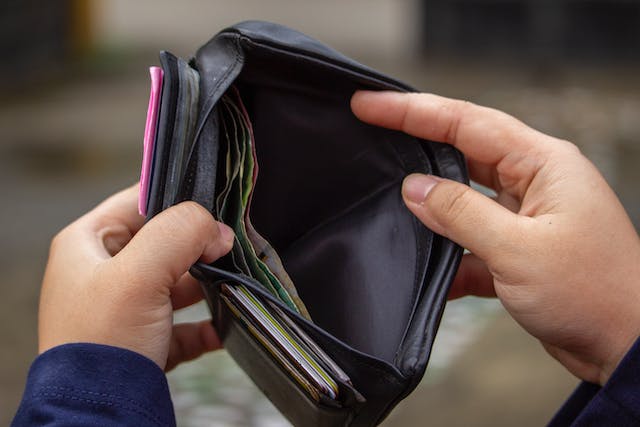Even people who are the most financially responsible can find themselves in a financial pinch with money being tight for a while. It happens when unexpected bills pop up or you suddenly need to pay for something important, but your paycheck hasn’t come yet. During these times, it’s really important to know how to handle your money wisely.
There are smart ways to get through these times when money just isn’t stretching enough to cover your expenses. It starts with understanding your financial situation and making good decisions. In this article, we will go over some tips to help you navigate those times when you have trouble getting to payday.
1 – Short-term loans
When you need money quickly, there are a few options you might think about that will give you a quick cash infusion. There are advantages and disadvantages to each one so it takes some understanding of the various options to make an informed decision.
Payday loans are quick, small online loans that are due by your next paycheck. They’re often easy to get, even if your credit history isn’t great. However, they come with very high-interest rates and fees. This can make them a costly option if you’re unable to pay them back on time.
Credit card advances allow you to borrow against your available credit card balance. This can be a quick source of cash, but it’s not without its downsides. These advances usually come with higher interest rates compared to regular purchases, plus additional fees. Also, interest starts accumulating immediately, unlike purchases where you might have a grace period.
Personal loans are borrowed funds that you repay in installments over a set period. These can be obtained from banks, credit unions, or online lenders. They usually have lower interest rates compared to payday loans or credit card advances, especially if you have good credit.
The application process can be more involved, requiring proof of income and a credit check. This means that you may be waiting for some time before getting access to the cash. In a financial crunch, that extra time could mean that this type of loan won’t work.
Borrowing from friends or family is another alternative. This option usually doesn’t involve interest and can be more flexible in terms of repayment. However, it’s important to treat this as seriously as a formal loan. It’s a good idea to create a written agreement detailing how much you’re borrowing, the repayment schedule, and any interest. This can help avoid misunderstandings and maintain a good relationship with your lender.
2 – Cutting costs
When you’re in a short-term financial crunch, cutting costs quickly can make a big difference and have an immediate impact. The first step is to reduce non-essential spending. This means taking a close look at your expenses and deciding what you can live without for a while.
It might be eating out, subscriptions you don’t use much, or putting off big purchases. When you put a stop to those expenses, it might just help you get through until you get your next paycheck.
You can even find areas to save on your essential expenses like utilities and groceries. For utilities, simple things like turning off lights when not in use, reducing water usage, and adjusting your thermostat can lower your bills. With groceries, plan your meals, buy in bulk, choose generic brands, and avoid impulse buys. These small changes can add up to big savings.
You could even consider selling items you no longer need. Online marketplaces, garage sales, or consignment shops are great places to turn your unused or unnecessary items into quick cash. This not only helps you financially but also declutters your space.
3 – Make a side income
When money’s tight, finding ways to earn extra money can be a big help. One option is to look for part-time or freelance work that can be done in your free time.
Depending on your skills and experience, you might find opportunities in areas like retail, restaurants, or administrative support. Freelance work is also a great choice if you have skills in writing, graphic design, or programming. Websites that connect freelancers with clients can be a good place to start.
The gig economy offers another avenue for additional income. This includes driving for ride-share services, delivering food, or doing odd jobs through various apps. These roles offer flexibility, allowing you to work at night or on the weekends. You often get paid right away so a quick infusion of cash can be exactly what you need to get through the crunch.
If you’re creative, selling crafts or services online can be a lucrative option. Websites like Etsy or eBay are platforms where you can sell handmade goods, vintage items, or even digital products. It can take a while to start making sales, though, so treat this as a side hustle to prevent future financial crunches.
4 – Get some help
There are community resources and assistance programs designed to help people get through some rough financial times. Local food banks and non-profit organizations offer services for those in need. These resources can provide quick relief for essential expenses so you can focus your funds on things like rent or mortgage.
If you’re consistently struggling to make ends meet, missing bill payments, or feeling overwhelmed by your financial situation, it’s time to get professional advice. Financial counselors can provide guidance on budgeting, managing debt, and making informed financial decisions.
Financial advisors can help you avoid making the same financial mistakes over and over so you can avoid getting into trouble. Although it seems like financial advisors are there for people who already have plenty of money, many advisors also provide consultations for people at different stages of their financial journey.
Conclusion
Navigating a short-term financial crunch can be challenging, but with the right strategies, it’s possible to emerge stronger and more financially savvy. Financial challenges are a part of life, but with the right approach and mindset, you can get through them and come out the other side in better financial health.


